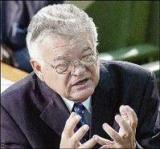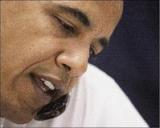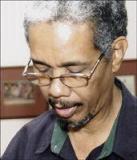Columns By Category
Popular Articles
- THE REALITY OF TACKY AND SAM SHARPE
- PLEASE DON’T BETRAY US AGAIN POLITICIANS
- CRY, MY MURDEROUS COUNTRY
- MODERNIZING THE PNP: VERSION.2020
- IS THE EXCHANGE RATE ON TARGET OR IS IT A WHOPPER?
- CARICOM: BEACON OF DEMOCRACY OR COWARDLY DISGRACE?
- DEMOCRACY PREVAILS IN THE UNITED STATES
- THE CRIME STATISTICS SPEAK FOR THEMSELVES
- PETROJAM, OIL PRICES, AND THE $7 TAX
- Kevin O'Brien Chang | Brains, not brutality – smart(phone) crime fighting
- TERRORISM IN JAMAICA
- STOP CURRENCY CRISIS TALK
- 'CASTIGATED KD' AND THE 9 YEAR WONDER
- GET PAST MERE TALK ON DONS AND GARRISONS
- LOW VOTER TURNOUT MYTHS AND ELECTION PREDICTIONS
- HOW GREAT CAN BROGAD BE?
- PNP WAS SOCIALIST FROM THE START
- AN AGE AND GENDER RE-ALIGNMENT ELECTION?
- Most influential Jamaican of 2010-2019?
- NO GAYLE, NO RUSSELL, NO TALLAWAHS
2008 Articles
People-empowered Crime Fighting
- Article
- December 14, 2008
- No comments
For all the sound and fury pontification of the hanging debate, international trends make it extremely unlikely that Jamaica will ever again execute murderers. Yet we keep ignoring common-sense ways to make our country a safer place by empowering the people to fight crime.
Take the 'white plate taxi' problem. Almost daily we hear reports about young women being abducted and robbed, and sometimes tragically raped and murdered, by unlicensed taxi men. Why do they take these illegal taxis despite all the warnings? Because there are not enough official red plate cabs around, and the choice is often between taking a chance with a white plate taxi, or remaining alone on a dark and scary street.
A Nation of Lunatics or Idiots?
- Article
- November 30, 2008
- No comments
What kind of country allows men with illegal guns to roam freely mere yards from a platform where the prime minister and his Cabinet are seated?
What kind of country keeps babbling about responsible parenting, but ignores the fact that less than 40 per cent of its children has registered fathers?
What kind of country obsesses about the death penalty - which has been or is being abolished in most United Nation member states - but has not built a new prison in at least 46 years, despite a 1,600 per cent murder-rate increase over that period?
Vengeance or Justice?
- Article
- November 23, 2008
- No comments
Man claims to be rational, but our opinions are determined as much by emotion as reason. And, for all the logical pros and cons, most people's views on capital punishment are based on feelings and not facts.
Obama's Victory would Transcend Politics
- Article
- November 2, 2008
- No comments
Save our Children, Please!
- Article
- October 12, 2008
- No comments
A Good Day for Democracy
- Article
- September 28, 2008
- No comments
In retrospect, no other outcome would have been acceptable. Only in military coups or staged revolutions are popular leaders replaced by less popular ones. People are supposed to be led by the person most of them prefer, and Portia Simpson Miller has been favoured by wide margins in every poll taken. So it would have been an electoral travesty if Peter Phillips had garnered more delegate votes on Saturday and replaced her as People's National Party leader. From this perspective, Portia's victory was a good day for Jamaican democracy.
PNP Race: Heart vs Head
- Article
- September 14, 2008
- No comments
Politics, goes an old adage, is two-thirds emotion and one-third intellect. And in the heat of elections, when the battle is soon to be lost or won, the ratio often seems to be nine to one.
Intra-party fights can be as vicious as broad-based elections, or even more so. Veteran political observers remember Pearnel Charles and Rosemarie Shaw being physically assaulted at the 1992 JLP conference. Now, when the unlettered masses, or 'the lumpen' as Professor Don Robotham likes to call them, get carried away and do foolish things, you hear people remark, "Well them just don't know better." But when highly educated people start acting in a totally irrational manner, all one can say is c'est la politique.
Expecting Too Little or Too Much
- Article
- September 7, 2008
- No comments
There has never been and never will be an ideal government. But this doesn't stop many from judging their rulers by a standard of perfection not found on Earth. Places we Jamaicans look up to as models of democracy and prosperity - Britain, United States, Canada - regularly show large majorities thoroughly dissatisfied with their politicians.
In contrast, many abysmally governed places freely re-elect leaders who keep them mired in poverty and violence. Between 1989 and 2007 for instance, the murder count in Jamaica went from 429 to 1574, and the economy grew by an official cumulative total of less than 10 per cent. Yet the PNP won four straight terms and only missed winning a fifth by 3,000 votes.
Jamaican-born and Coached
- Article
- August 24, 2008
- No comments
It was the kind of scene that takes place every day in Jamaica. A bunch of guys race across a field, one pulls away from the pack, holds out his hands in triumph, and slaps his chest in glee shouting 'A me dat!'. Then he celebrates by dropping a few dance moves to the reggae music that's always pounding in the background somewhere.
All Different, all the Same
- Article
- August 17, 2008
- No comments
The Olympics may be the most unifying international force humankind has ever known. Over a billion persons watched the opening ceremonies in Beijing. And black, white, yellow or brown, who didn't feel a momentary sense of kinship with every one of the 204 national contingents parading by? All different, yet all the same human beings as us. This, too, am I.





